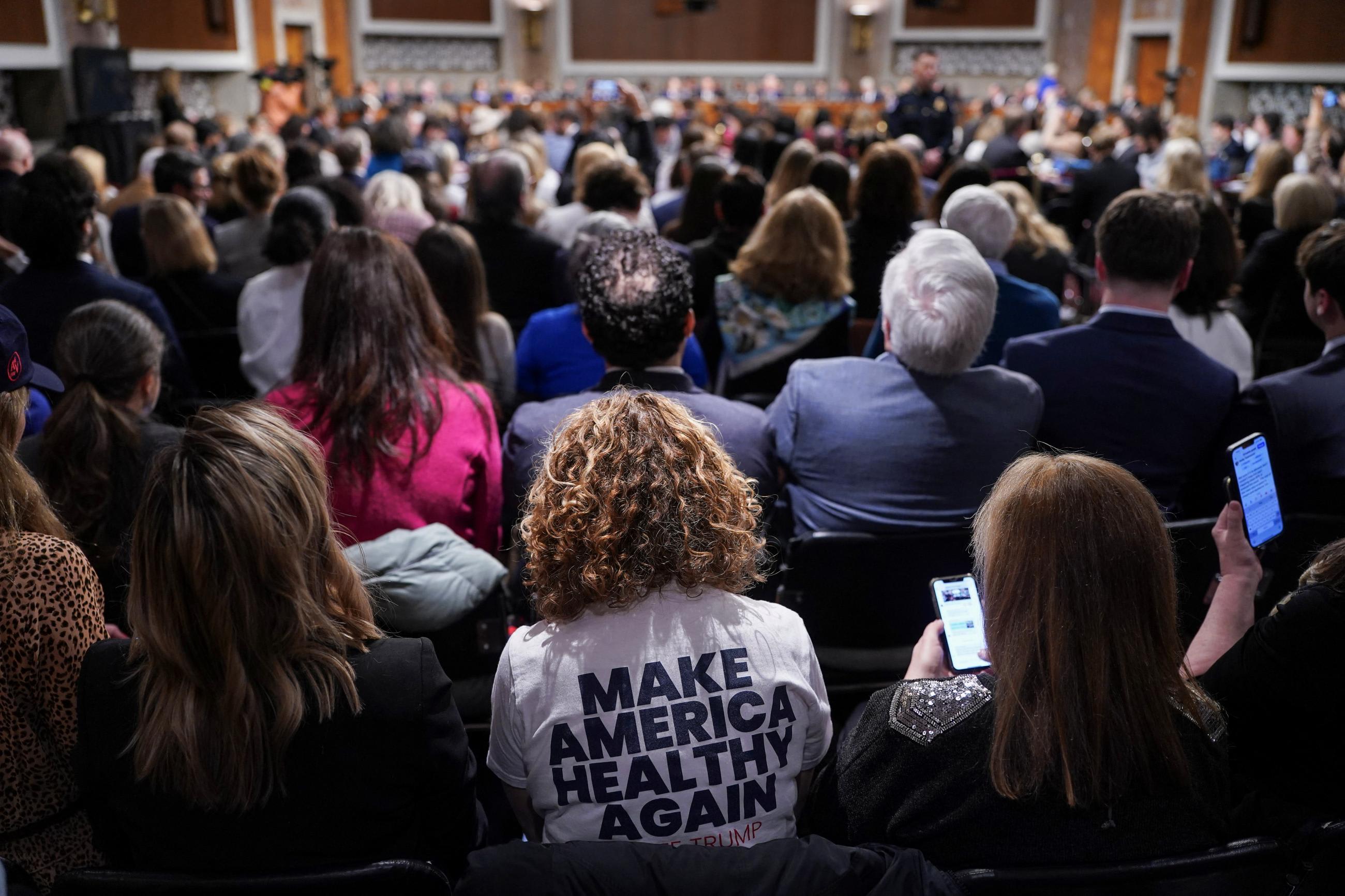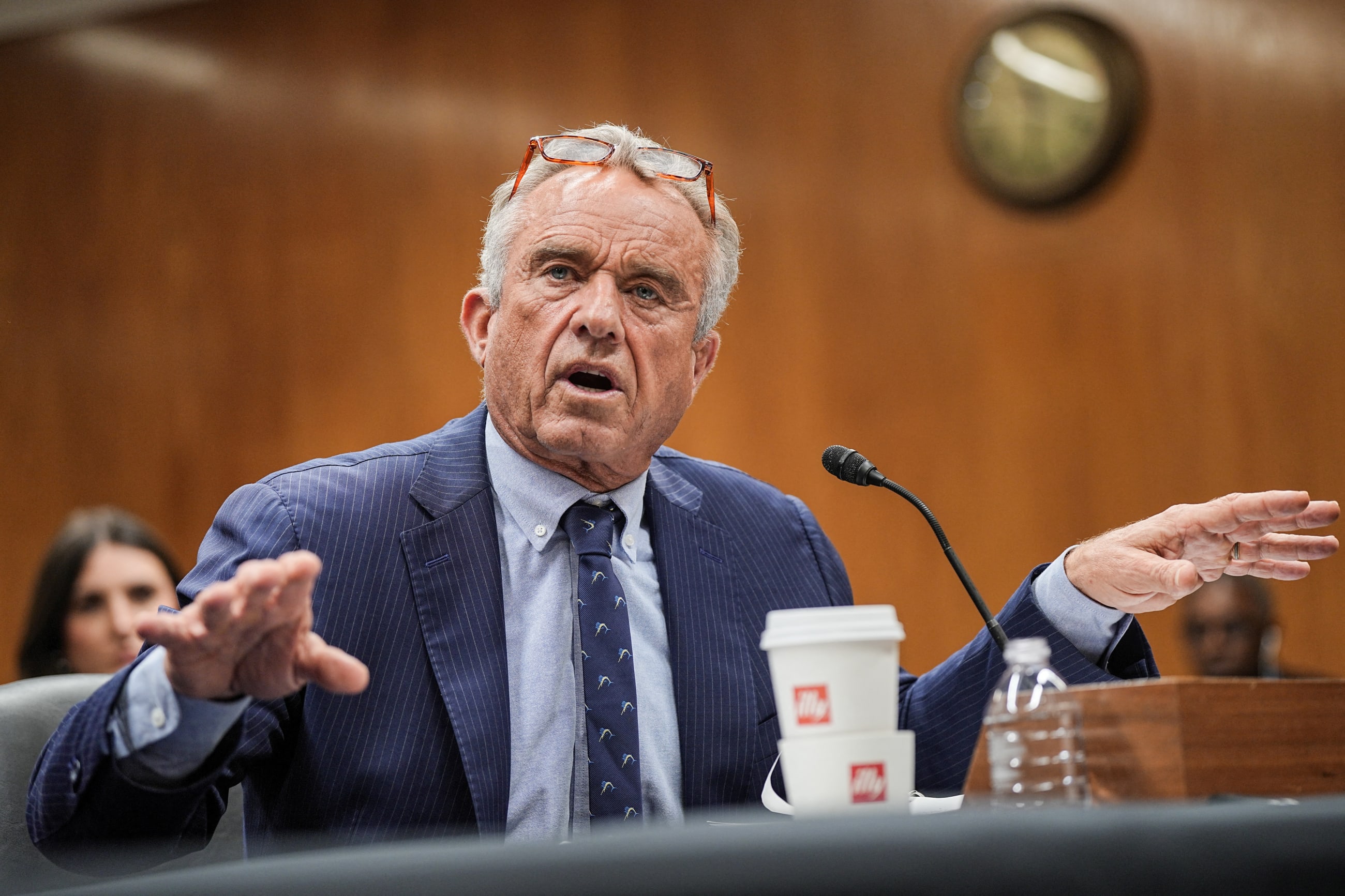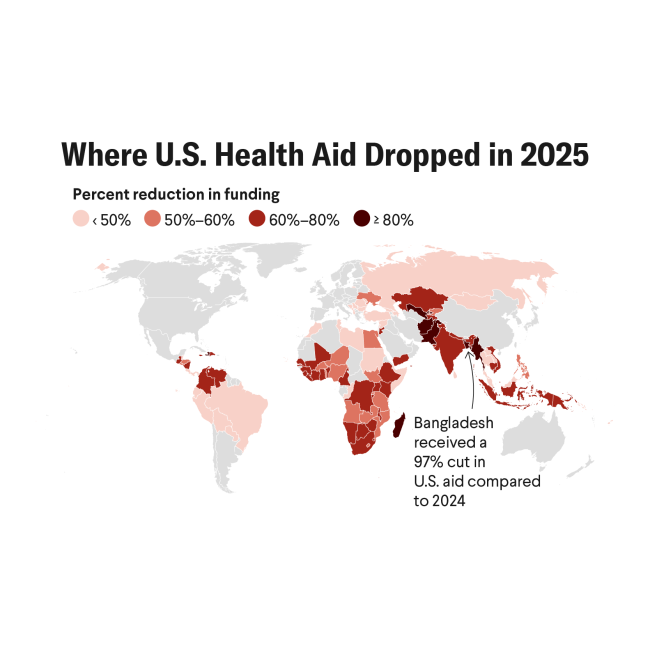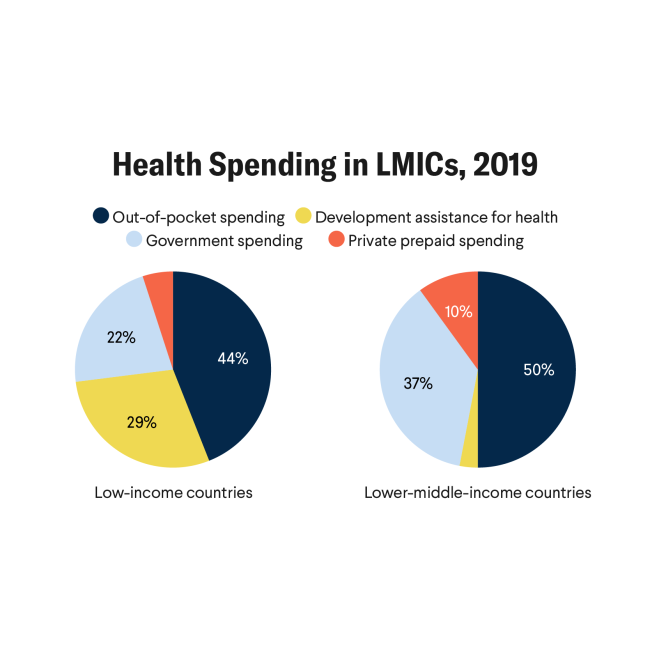Before the U.S. Senate Appropriations Subcommittee on Departments of Labor, Health and Human Services, Education, and Related Agencies on Tuesday, Health and Human Services (HHS) Secretary Robert F. Kennedy Jr. defended the Donald Trump administration proposal to slash the department's annual budget by more than 25%, marking the third such hearing in a week. Although senators convened the sessions to discuss the department's future funding, each hearing quickly became an interrogation of HHS actions during the first 100 days of the Make America Healthy Again (MAHA) executive order, a period that culminates on May 24. Across party lines, senators questioned what the MAHA agenda entails beyond the drastic cuts.
The Trump administration has eliminated 20,000 staff positions across HHS, subagencies such as the National Institutes of Health (NIH) and the Centers for Disease Control and Prevention (CDC) seeing deep reductions in their workforces. A Senate committee minority report states that the NIH lost $2.7 billion through March. The president's budget for fiscal year 2026 proposes a 26.2% reduction to HHS relative to current funding.
"Sit down and talk to us in detail about what you are doing," urged Senator Tammy Baldwin (D-WI) during Tuesday's session, noting that the plan HHS submitted to Congress outlining its intended use of appropriated funds was barely one page long. "I want to understand how the budget proposal would impact my state," added Senator Shelley Capito (R-WV).
Lawmakers cited urgent constituent concerns: A cancer patient's last-resort treatment was delayed; a lead poisoning crisis in Milwaukee public schools was denied federal assistance; and 250 families were left stranded in Wisconsin when Head Start programs abruptly paused. "Your decision to fire staff and eliminate offices is endangering children," Baldwin continued.
Secretary Kennedy repeatedly returned to MAHA's stated goal of tackling chronic illness and federal debt—but offered few concrete answers.
To track how the administration carries out its vision to Make America Healthy Again, Think Global Health examined the top health appointees' confirmation hearings, when nominees were compelled to interpret the executive order's goals for specific health contexts. Their actions taken since those hearings and other public commitments serve as a de facto report card for accountability.
Decoding MAHA Through Confirmation Hearings
The confirmation hearings began with Secretary Kennedy in late January and continued through mid-March with Jay Bhattacharya for NIH director, Mehmet Oz for Centers for Medicare and Medicaid (CMS) administrator, and Marty Makary for Food and Drug Administration (FDA) commissioner.
Their confirmations included numerous commitments across 10 broad health topics, summarized in the following table. Three themes—workforce and budget cuts, vaccinations, and drug prices—drew intense bipartisan questioning.
Workforce and Budget Cuts
Each health appointee said they would safeguard the HHS workforce, but to varying degrees. Secretary Kennedy struck the strongest tone, vowing not to fire anyone "who's doing their job," insisting that he does not want to "inhibit or impair the pace of innovation." Bhattacharya pledged no "watch lists" or ideology-based purges, and he promised NIH researchers the "resources they need to do their life-saving research." Makary said he would carry out an independent personnel review; Oz said he would focus on raising morale and addressing "what's going on with DOGE [Department of Government Efficiency]." All four emphasized transparency and minimizing conflicts of interest.
The workforce undertakings in accordance with hearing commitments include when in mid-April Commissioner Makary moved to block industry-linked individuals from FDA advisory committees—honoring his pledge to minimize conflicts of interest. Other moves contradict the early pledges regarding staffing. On March 27, HHS announced the Fork in the Road plan to shrink its workforce by 20,000, issuing some layoffs without notice, though several hundred have been recalled.
Notably absent from the announcement—or any public HHS communication—are the criteria being used to terminate research grants. Watchdogs report as of May 20 more than 1,500 NIH grants valued collectively at $7.5 billion have been canceled, and the HHS maintains a list of grants [PDF] terminated under the executive order titled Radical Transparency About Wasteful Spending.
Further undermining MAHA's calls for transparency is the language used to communicate these cuts. Grant recipients report receiving notices stating only that their research "no longer effectuates agency priorities." During the May 20 hearing, Senator Baldwin addressed this disconnect directly, stating that though radical transparency is "a great catchphrase, it could not be further from the reality that we're experiencing right now." Reflecting these concerns, several senators shared during last week's hearings that the Hill version of the proposed budget includes asterisks in place of spending levels for more than 530 programs.
Although the canceled projects predominantly cover polarizing issues, such as HIV/AIDs (28.7%), transgender health (24.3%), COVID-19 (17.1%), and climate change (3.5%), these research grants often funded lifesaving public health work—such as neonatal care in rural areas or flu vaccine outreach for Black children. According to KFF, roughly two-thirds of canceled grants have affected blue states, suggesting ideological targeting. A handful of projects have been reinstated, but remaining cuts, as Senator Baldwin pointed out, undermine the executive order's stated goal: "You cannot tell us that you want to make America healthy again when you are willfully destroying programs."
Vaccinations
Vaccination took the spotlight during the confirmation hearings amid a growing outbreaks of measles and avian flu. The appointees made several assurances that they would not undermine vaccination efforts. Secretary Kennedy pledged to restore trust in vaccines by committing not to "impound, divert, or reduce" congressional vaccine funding, and voiced support for the childhood immunization schedule, adding that he would "do nothing . . . that makes it difficult or discourages people" from taking polio or measles vaccines. Bhattacharya and Oz echoed cautious support; Makary promised to restore the FDA's vaccine advisory panel and pledged his intentions to keep advisory structures intact.
Some steps have aligned with the promises. The CDC and FDA delayed but then ultimately revived their respective vaccine committees—the Advisory Committee on Immunization Practices, and the Vaccines and Related Biological Products Advisory Committee—with meetings scheduled for April and May. The NIH also announced an ambitious Generation Gold Standard initiative in May to develop a universal flu vaccine.
Drastic workforce reductions could limit the commission's ability to deliver on some of its ambitious promises
Other efforts diverge from the appointees' hearing statements. On April 29, Secretary Kennedy sowed doubt over the effectiveness of the measles vaccine, falsely saying on the Dr. Phil Show that it had never been safety tested. He also encouraged parents to "do their own research," wavering on his commitment to not discourage trust in the vaccine. A top FDA official alleged that HHS asked him to find nonexistent data associating the measles vaccine with brain swelling and promoting an alternative treatment that does not stop measles infections. In hearings with Congress last week and this week, Kennedy touted misinformation about the measles-mumps-rubella vaccine, specifically, the falsehood that the shot contains fetal tissue.
Although a judge overturned an $11 billion cut to state-level outbreak monitoring and response programs, damage to vaccine access was already under way. Dallas, not far from the epicenter of this year's measles outbreak, saw 50 vaccination clinics shut down. On May 20, the FDA released new guidance limiting access to annual COVID-19 boosters to individuals older than 65 or those with health conditions that increase risk of severe outcomes. This move opposes many appointees' pledges to not change childhood vaccination schedules.
The gap between commitment and reality is receiving public recognition. In a May 14 budget testimony, Senator Chris Murphy (D-CT) told Secretary Kennedy that he finds Kennedy's failure to follow through on vaccine promises "really dangerous for our relationship."
Drug Pricing
Lowering drug prices has drawn consistent bipartisan support. The nominees made relatively uniform commitments to support this initiative. Secretary Kennedy promised to support Medicare price negotiations and public-private partnerships through bipartisan legislation. Bhattacharya offered general support for reducing pharmaceutical influence but offered few details. Oz pledged to defend pricing negotiation programs in court—and investigate "every single way that we can reduce drug prices," highlighting international reference pricing. Makary echoed these sentiments and added a focus on bolstering approval and competition for generic and biosimilar drugs.
On April 15, the White House released its drug pricing plan that echoes the appointees' assurances—expanding drug negotiations, lowering costs for seniors, and targeting industry middlemen. As the public awaits more specific implementation details, health policy officials tentatively agree that if the order's provisions work, drug prices could successfully be reduced. However, the new policy is likely to make drugs inaccessible in lower-income countries, as CFR Senior Fellow Prashant Yadav argued.
MAHA's Ongoing Report Card
At only 100 days since the MAHA executive order, it's too early to judge the administration's long-term trajectory with the agenda's goals. Drastic workforce reductions could limit the commission's ability to deliver on some of its ambitious promises. Trust in institutions is directly linked to health outcomes, meaning that public confidence in the integrity of top health officials is critical to good leadership and public health. As MAHA evolves, its report card deserves ongoing evaluation of how closely America's new public health leaders honor their commitments.













